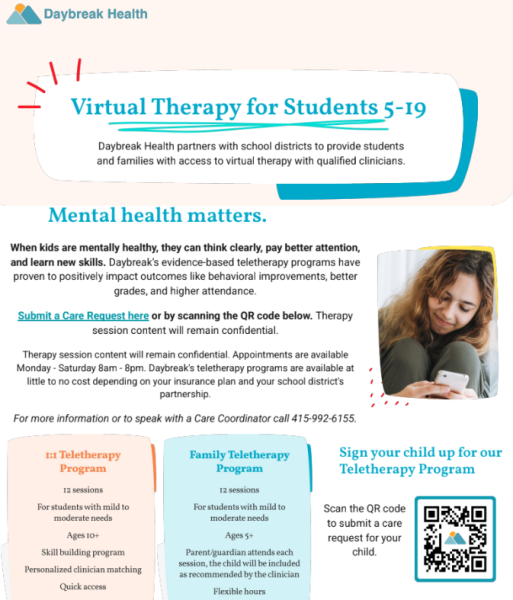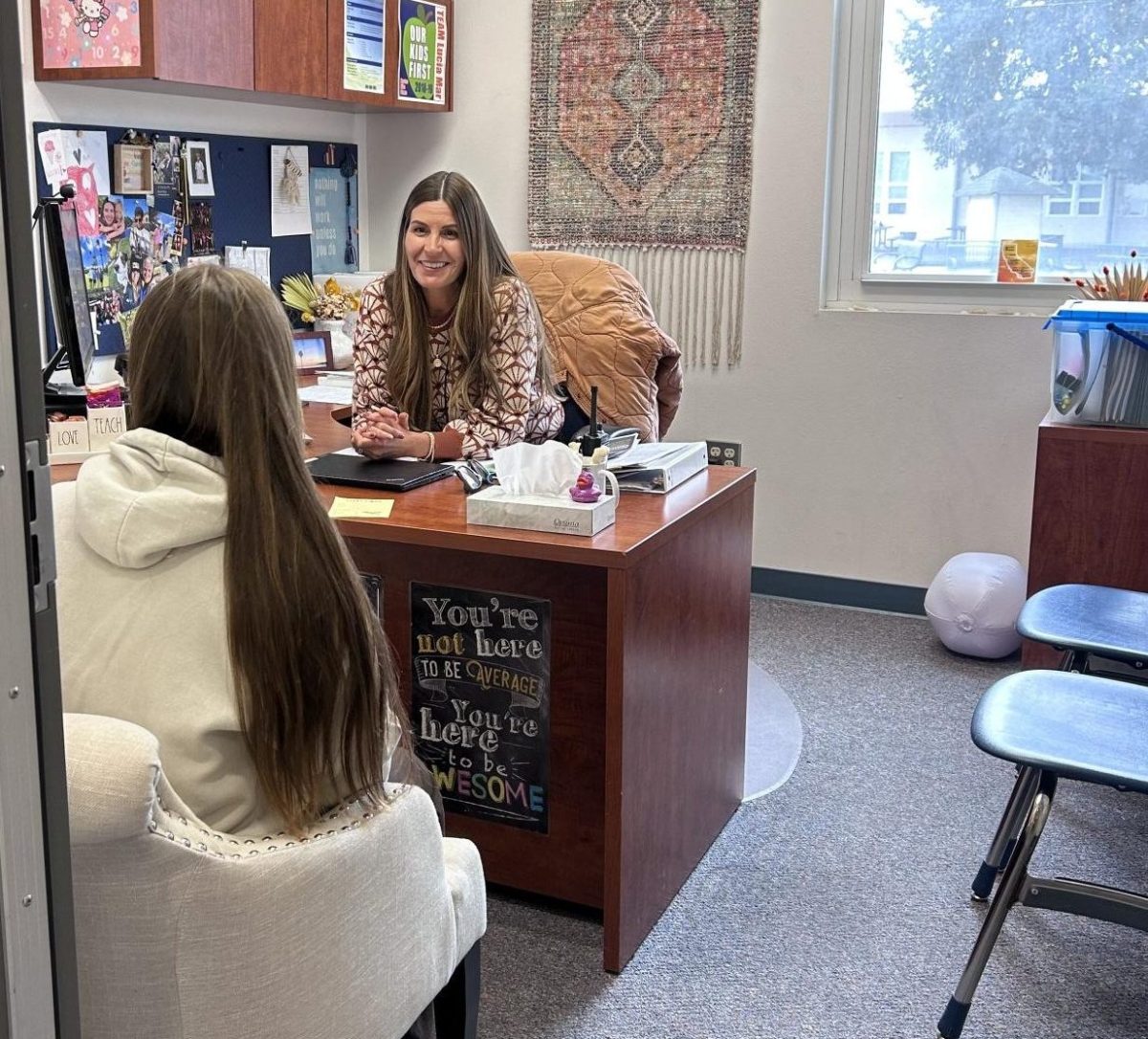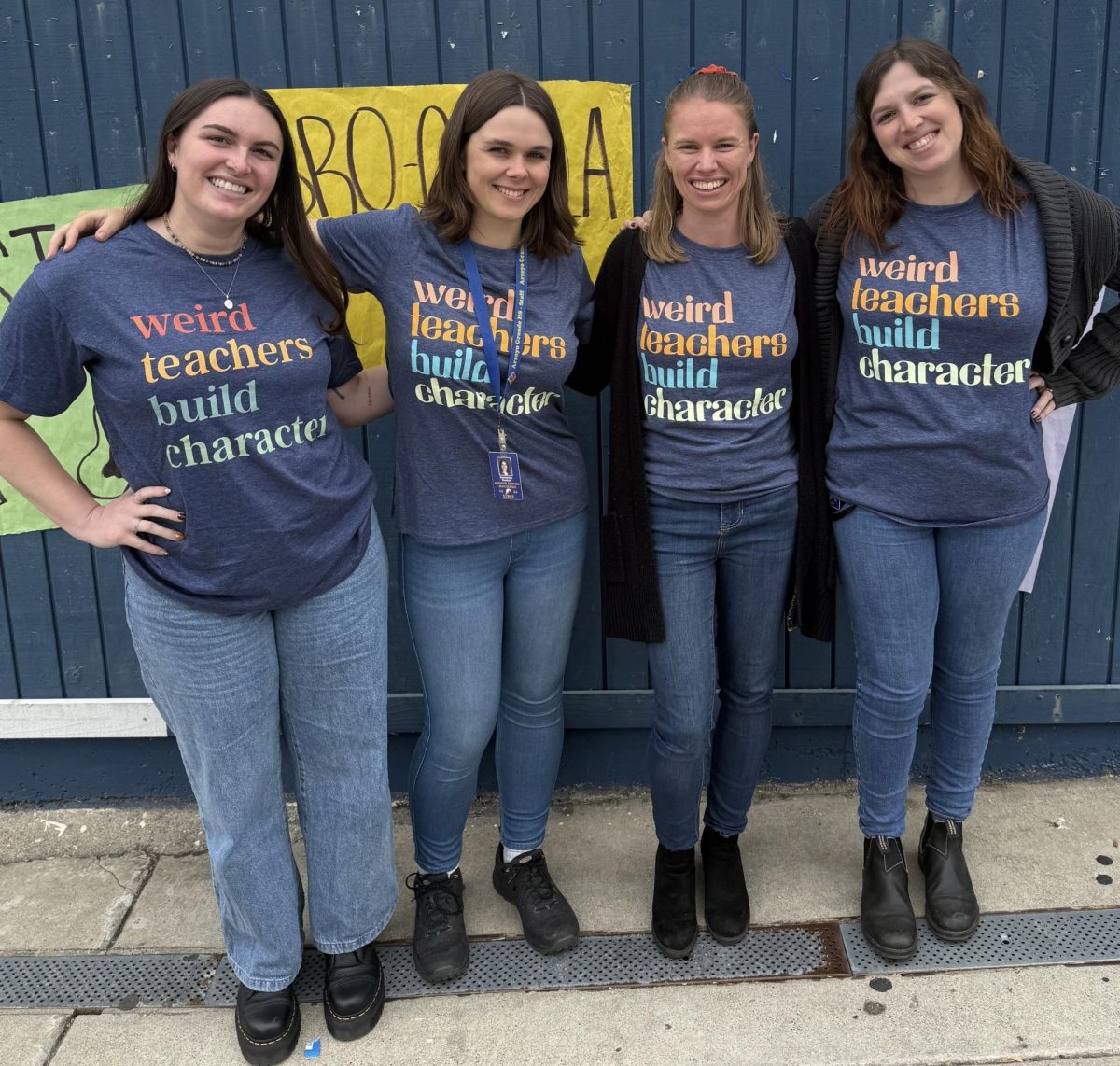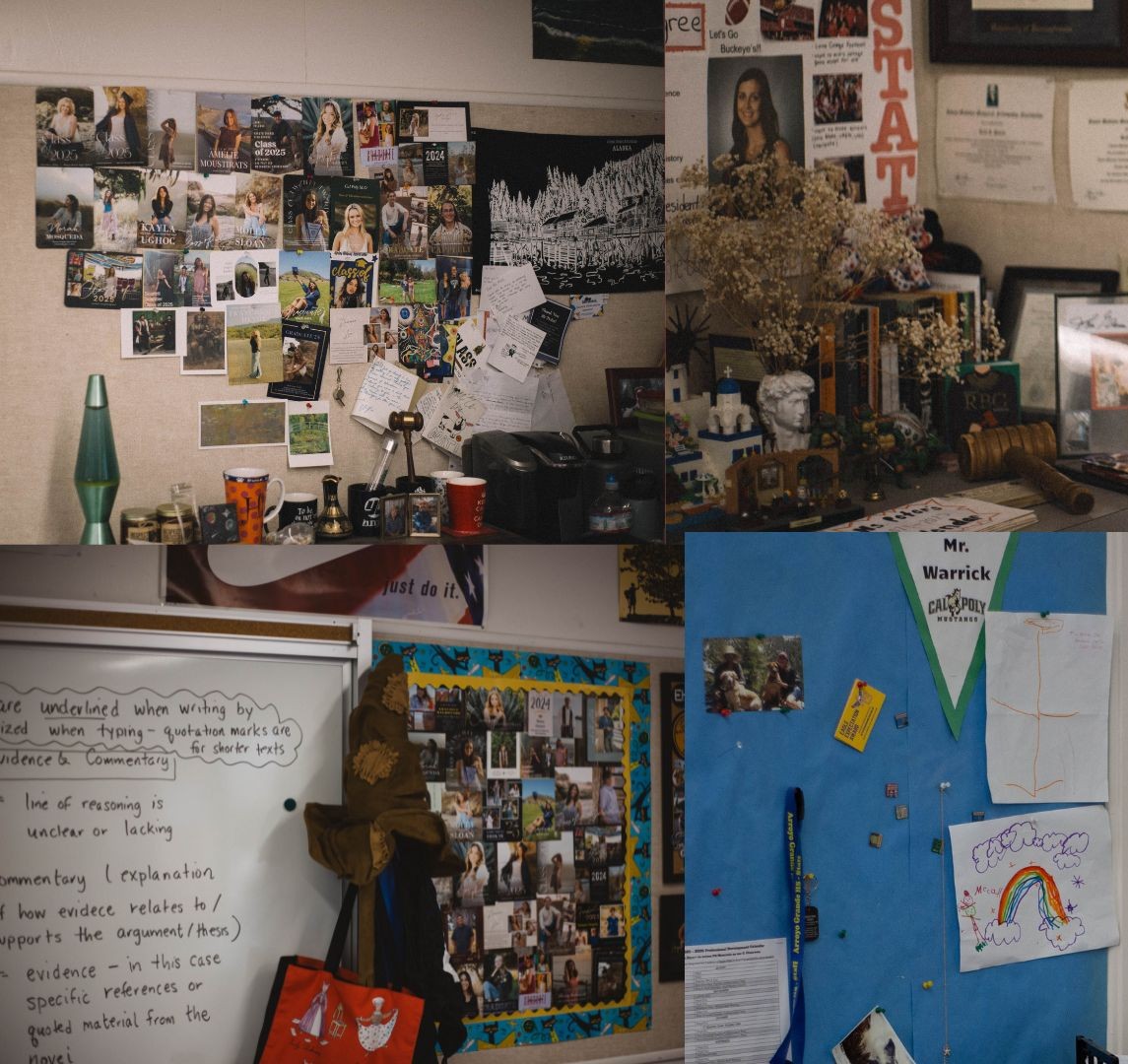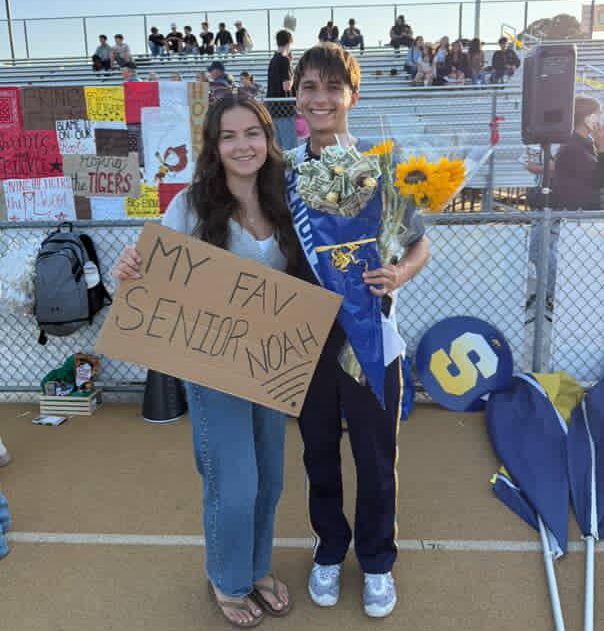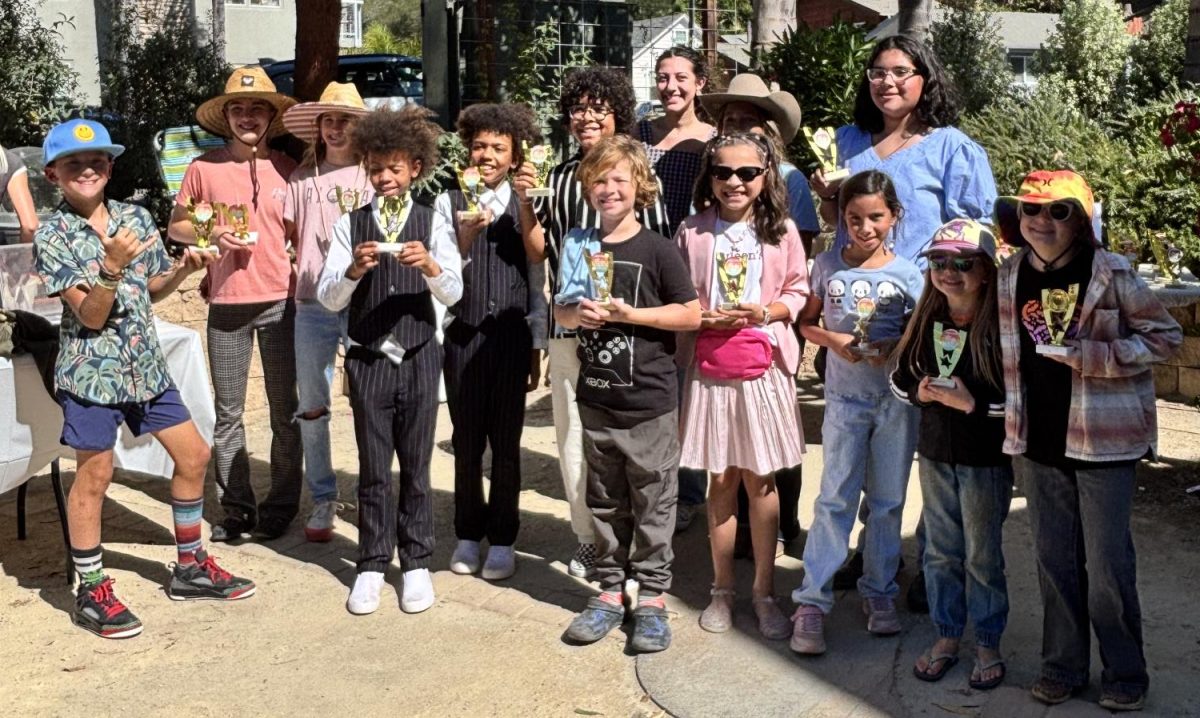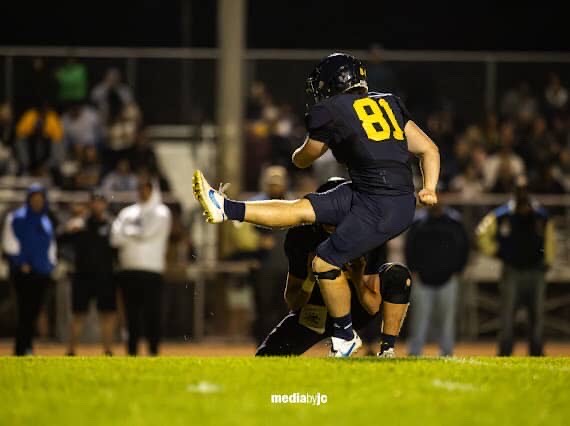After COVID, the amount of noticeable anxiety, depression, and stress around campus increased. It became more recognizable, easier to spot, and harder to help. On our campus at Arroyo Grande High School, there are many resources specific to help students in need; however, few people seem to know much about them and how to come forward and ask for information or help.
Lisa Martinez is the Student and Family Advocate on campus. She is available in the counseling office for students who are overwhelmed, need someone to talk to, or just need a quiet space to decompress.
“I’m always asking them if they feel like they have something to share or want to get off their shoulders,” Martinez said.
Martinez writes referrals to outside therapy offices for support if the family agrees it is the needed next step in helping the student. In addition to Martinez, 3 on-campus therapists in the health office are available to talk.
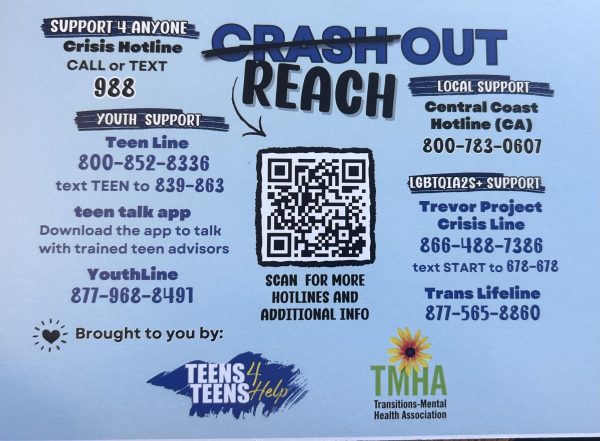
“We do have therapists on site. Including a clinical psychologist,” Martinez said.
Therapists are on campus all day Tuesday through Thursday.
“[The 3 therapist on campus] work out of the health office, and they’re not like a part of our staff. They’re contracted to come on campus, I think we have 1 male and 2 females,” Counselor Alyssa LaBrado said.
Alongside LaBrado, there are 4 other trained counselors, Cristel Penton, Joanna Onato-Molina, Yusdivia Mosqueda, and Jose Alvarez, who are available to help students with emotional and academic needs.
“My job isn’t to fix anything, right? It’s just to kind of de-escalate, like ‘calm down, let’s get to a place where we can think about things logically again and make a plan,’” LaBrado said.
The counselors on campus build relationships with students to ensure everyone has a person they can go to and trust.
“I’ll just check up on [students] and if I feel like that person’s comfortable with me and they’re opening up, I’ll decide how I need to help them in their situation,” Mosqueda said.
Teachers are another valuable resource for help. Some teachers are very open to talking and working through situations, accommodating work with their students’ personal lives, making sure their students are comfortable enough to ask for help, and have a safe space.
“I think what kids need is just a space where they feel like they can feel [their feelings], be in their own head for a minute, and not get shamed,” AP Pre-Calculus teacher Dan Hoffman said.
Hoffman is seen as a trusted teacher on campus by some students. He is almost always open to talking and helping his students work through their problems.
“If you’re in your own head about something and need some space to get it out, maybe I push for journaling or help get their school squared away,” Hoffman said.
Many teachers around campus want the best for their students and are willing to work with them if the effort is reciprocated.
“I’m usually pretty flexible with work and all, and super understanding. When I feel like [my grace] is being abused, that’s when I say I draw the line with being lenient,” Statistics teacher Aaron Sue said.
Teachers, counselors, therapists, the clinical psychologist, and administrators are all available resources for student advocacy. Students in need can find other online resources if speaking to someone in person feels too overwhelming.
